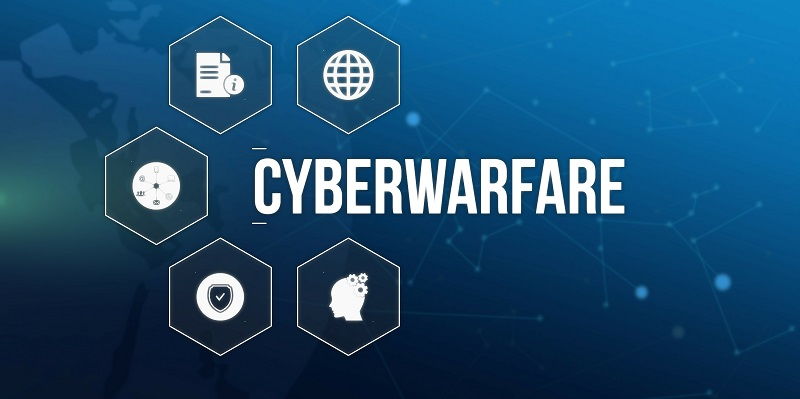A Gaza-based threat actor has been implicated in a series of cyber attacks targeting private-sector energy, defense, and telecommunications organizations in Israel. Microsoft recently revealed details about this malicious campaign, which it has been tracking under the name Storm-1133. The attacks have targeted not only Israeli sectors but also entities loyal to Fatah, a Palestinian nationalist political party based in the West Bank. This article delves into the tactics employed by Storm-1133, the motives behind the attacks, the implications of the disclosure amid the Israeli-Palestinian conflict, and the broader landscape of nation-state cyber threats.
Storm-1133: Microsoft’s Investigation Reveals a Disturbing Truth
Microsoft’s fourth annual Digital Defense Report sheds light on the activities of Storm-1133, a Gaza-based threat actor responsible for a string of cyber attacks against Israeli organizations. This revelation highlights the growing sophistication of cyber threats and the need for enhanced defense measures.
Targets: Israeli Energy, Defense, and Fatah-Affiliated Entities
The Storm-1133 campaign has specifically targeted organizations in the Israeli energy and defense sectors. Additionally, entities affiliated with Fatah, a prominent Palestinian political party, have also been subjected to these cyber attacks. This indicates a broader agenda beyond purely financial gain.
Attack Chains: Social Engineering and Fake LinkedIn Profiles
To carry out their malicious activities, Storm-1133 employs a combination of social engineering techniques and fake profiles on LinkedIn. These profiles impersonate Israeli human resources managers, project coordinators, and software developers, enabling the threat actors to send phishing messages, conduct reconnaissance, and deliver malware to unsuspecting employees in targeted Israeli organizations.
Third-Party Infiltration Attempts
Microsoft has observed Storm-1133 attempting to infiltrate third-party organizations associated with the Israeli targets of interest. By compromising these entities, the threat actors aim to gain access to sensitive information and expand their reach within the Israeli ecosystem.
To maintain control over the compromised systems, Storm-1133 leverages backdoors that are coupled with a configuration that allows them to dynamically update their command-and-control (C2) infrastructure. The use of benign platforms like Google Drive for C2 infrastructure adds an extra layer of camouflage, making detection and attribution more challenging.
The disclosure of Storm-1133’s activities aligns with a rise in hacktivist operations amidst the escalating Israeli-Palestinian conflict. Groups like Ghosts of Palestine have launched attacks against government websites and IT systems in Israel, the U.S., and India. This cyber warfare further underscores the complexity of the conflict and the role of technology in modern-day warfare.
Asian Hacktivist Groups: Targeting Nations Aligned with the U.S.
Notably, approximately 70 incidents have been identified where Asian hacktivist groups actively target nations such as Israel, India, and even France due to their alignment with the U.S. These attacks indicate a broader geopolitical motivation beyond regional conflicts.
Nation-State Threats: A Shift Towards Espionage Campaigns
The cybersecurity landscape has witnessed a shift in nation-state threats from destructive and disruptive operations towards long-term espionage campaigns. Nations like the U.S., Ukraine, Israel, and South Korea have become prime targets for these sophisticated cyberattacks, making it imperative for governments and organizations to bolster their defensive measures.
Custom Tools and Backdoors: Facilitating Persistence and Detection Evasion
The evolving tradecraft of cyber threat actors is evident through the persistent use of custom tools and backdoors to enable long-term access to compromised systems. One such example is MischiefTut, a tool associated with the elusive Mint Sandstorm group (also known as Charming Kitten). These tools provide threat actors with a significant advantage in evading detection, stealing credentials, and exerting control over targeted systems.
The cyber attacks orchestrated by Storm-1133, a Gaza-based threat actor, have had a significant impact on Israeli energy, defense, and Fatah-affiliated entities. Microsoft’s efforts to track and disclose these activities shed light on the sophisticated tactics employed by threat actors in today’s cyber landscape. The overlap with the Israeli-Palestinian conflict and the rise of hacktivist operations adds another layer of complexity to the situation, further highlighting the necessity for robust cybersecurity defenses.
Nation-state cyber threats, which primarily focus on espionage campaigns, continue to pose a significant challenge for targeted nations. Custom tools and backdoors remain crucial tools in the arsenal of cyber criminals, underscoring the need for continued innovation in defensive measures.

